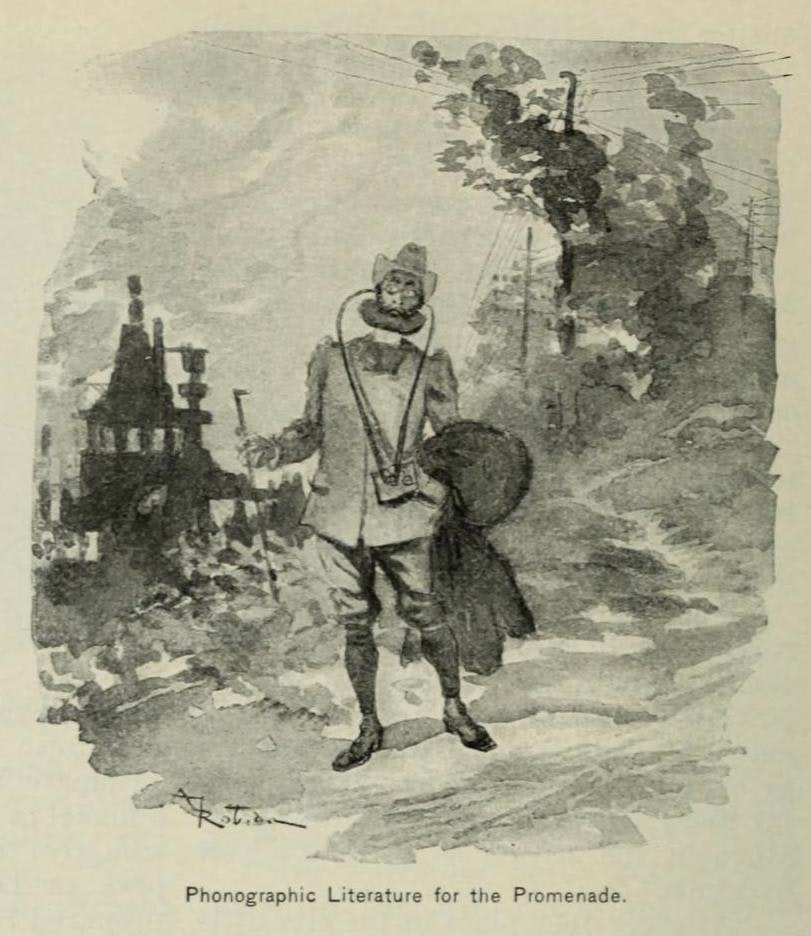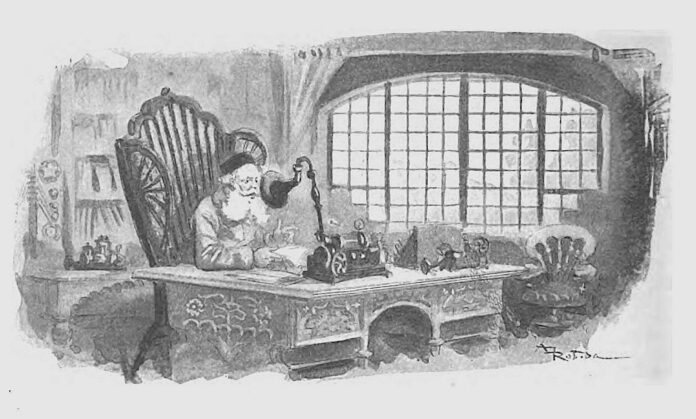The top of the 9teenth century remains to be hugely known as the fin de siècle, a French time period that conjures up nice, looming cultural, social, and technological adjustments. According to no less than one French thoughts lively on the time, amongst the ones adjustments can be a fin des livres as humanity then knew them. “I don’t consider (and the development of electricity and modern mechanism forbids me to consider) that Gutenberg’s invention can do othersmart than quicklyer or later fall into desuetude,” says the character on the center of the 1894 story “The End of Books.” “Printing, which since 1436 has reigned despotically over the thoughts of guy, is, in my opinion, dangerened with demise by means of the various gadgets for registering sound that have overduely been invented, and which little by means of little will move directly to according tofection.”
First published in a topic of Scribner’s Magazineazine (viewable at the Internet Archive or this web page), “The Finish of Books” relates a conversation amongst a bunch of guys belonging to various disciplines, they all fired as much as specuoverdue at the long run after listening it professionalclaimed at London’s Royal Institute that the top of the sector used to be “mathematically certain to happen in precisely ten million years.” The participant foretelling the top of books is, somewhat ironically, referred to as the Bibliophile; however then, the story’s writer Octave Uzanne used to be well-known for simply such enthusiasms himself. Believing that “the success of each and everyfactor which can want and encourage the indolence and selfishness of guys,” the Bibliophile asserts that sound documenting will put an finish to print simply as “the elevator has finished away with the toilsome climbing of stairs.”
Those 130 or so years later, anyone that’s been to Paris is aware of that the elevator has but to finish that task, however a lot of what the Bibliophile predicts has certainly come true within the type of audiobooks. “Certain Narrators shall be sought out for his or her fantastic deal with, their contagious sympathy, their exciting heat, and the according tofect accuracy, the fantastic punctuation in their voice,” he says. “Authors who don’t seem to be sensitive to vocal harmonies, or who lack the flexibility of voice necessary to a fantastic utterance, will avail themselves of the services of employed actors or singers to warearea their paintings within the accommodating cylinder.” We might not use cylinders, however Uzanne’s description of a “pocket apparatus” that may be “stored in a simple opera-glass case” will certainly remind us of the Strollguy, the iPod, or any other transportable audio software we’ve used.

All this must additionally recall to mind another twenty-first century phenomenon: podcasts. “At house, strolling, sightseeing,” says the Bibliophile, “fortunate listeners will experience the ineffable pride of reconciling hygiene with instruction; of nourishing their minds whilst exercising their muscles.” This may occasionally additionally transshape journalism, for “in all informationpaaccording to places of work there shall be Talking Halls the place the editors will document in a transparent voice the inside track won by means of telephonic despatch.” However the right way to satisfy guy’s addiction to the picture, neatly in evidence even then? “Upon massive white monitors in our personal properties,” a “kinetograph” (which we lately would name a television) will venture scenes fictional and factual involving “well-known males, criminals, beautiful ladies. It is going to no longer be artwork, it’s true, however no less than it’ll be lifestyles.” But however striking his prescience in other respects, the Bibliophile didn’t know – despite the fact that Uzanne can have — that books would according tosist via all of it.
by the use of the Public Domain Review
Related content:
1,000 Loose Audio Books: Download Nice Books for Loose
How the Yr 2440 Was once Imagined in a 1771 French Sci-Fi Novel
In 1922, a Novelist Predicts What the Global Will Glance Like in 2022: Twinemuch less Teletelephones, 8‑Hour Flights to Europe & Extra
A 1947 French Movie Accufeely Predicted Our Twenty first-Century Addiction to Goodtelephones
Marshall McLuhan Predicts That Electronic Media Will Disposition the E-book & Create Sweeping Adjustments in Our Eachday Lives (1960)
Based totally in Seoul, Colin Marshall writes and vastcasts on towns, language, and culture. His initiatives come with the Substack newsletter Books on Cities and the ebook The Statemuch less Town: a Stroll via Twenty first-Century Los Angeles. Follow him at the social webpaintings formerly referred to as Twitter at @colinmarshall.









